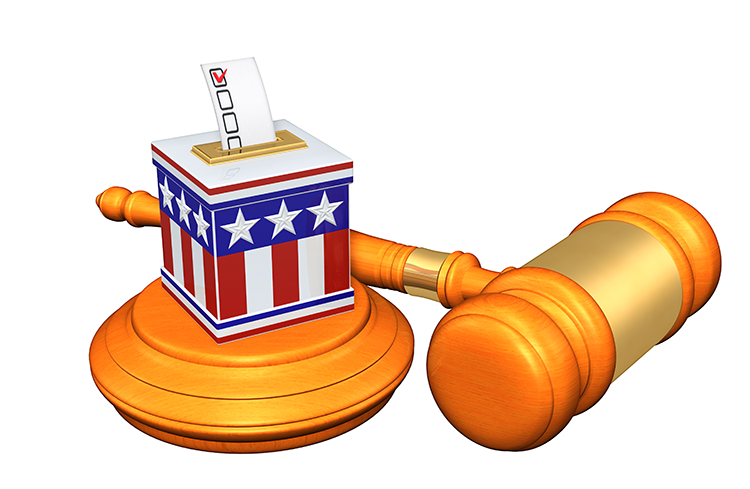SCOTUS allows counting of mail-in ballots in undated envelopes
U.S. Supreme Court
SCOTUS allows counting of mail-in ballots in undated envelopes
June 10, 2022, 8:59 am CDT
Image from Shutterstock.
The U.S. Supreme Court on Thursday refused to interfere with the counting of mail-in ballots in undated envelopes in a judicial election in Lehigh County, Pennsylvania.
The court majority vacated an earlier administrative stay issued by Justice Samuel Alito. The stay had paused a ruling by the 3rd U.S. Circuit Court of Appeals at Philadelphia that said the ballots should be counted because the failure to fill out the date space on ballot envelopes was immaterial.
The voters’ qualifications were checked before they received the ballots, and election officials had dated the returned ballots to show that they were received in time.
Alito dissented Thursday when the Supreme Court lifted his stay. He was joined by Justices Clarence Thomas and Neil Gorsuch.
The 3rd Circuit ruling had been cited by a challenger to TV personality Dr. Mehmet Oz in the Republican primary for the U.S. Senate in Pennsylvania. The challenger, hedge fund manager David McCormick, conceded last week, however, and Oz was declared the primary winner in a recount, CNN reported.
The judicial candidate who wanted to prevent the counting of the ballots was David Ritter, a Republican candidate in the 2021 election for the Lehigh County Court of Common Pleas.
Only 257 ballots were at stake, but the issue could impact thousands of voters in Pennsylvania in future elections, according to a press release by the American Civil Liberties Union. The ACLU represented voters who wanted their votes counted.
Alito made a similar point in his dissent.
“The 3rd Circuit’s interpretation broke new ground, and at this juncture, it appears to me that that interpretation is very likely wrong,” Alito wrote. “If left undisturbed, it could well affect the outcome of the fall elections, and it would be far better for us to address that interpretation before, rather than after, it has that effect.”
The case is Ritter v. Migliori.






